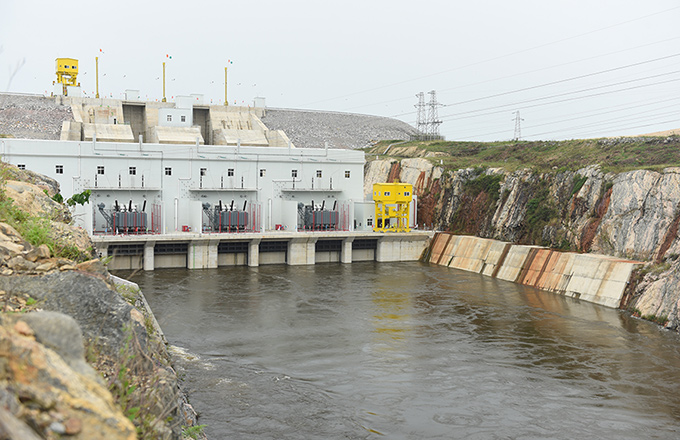APEC ideal platform to discuss digital economy: PECC
DA NANG, Vietnam - APEC is an ideal platform for discussing how individual governments are dealing with the challenges of the digital economy given its non-binding, flexible nature, according to a report released here Tuesday on the sidelines of Asia-Pacific Economic Cooperation (APEC) senior officials' meeting.
Beyond being a risk manager and an enforcer of sectoral regulation, the regulating authority needs to become an advocate for, and an enabler of, digital inclusion and innovation, said the report, State of the Region 2017-2018, released by the Pacific Economic Cooperation Council (PECC).
New technologies are revolutionizing business models and the way in which businesses and consumers interact -- from ride sharing services to mobile banking.
According to respondents of an annual PECC survey, some types of jobs are expected to decrease, such as clerical and assembly line work, while others such as technical and professional jobs are expected to increase.
The report includes results of the survey of over 700 regional policy experts on key challenges the Asia-Pacific as a region is facing.
"There will inevitably be some shifts in the future labor market as certain jobs become redundant while new skills are required. Various digital tools and online platforms can help us become more inclusive in our approach to education and upskilling," said Tang Guoqiang, an international co-chair of PECC.
"Every industrial revolution is disruptive and the wave of digitalization that we are seeing across all sectors of our society is no exception," said Eduardo Pedrosa, Secretary General of PECC and coordinator of the report.
Data protection, digital infrastructure, data privacy, universal broadband access and digital literacy were ranked the most import issues related to digital economy, according to the survey.
Respondents hoped the APEC leaders could address several issues related to digital economy in the meeting held in Da Nang, such as development of a regional digital economy framework and developing a major initiative on the digital economy.
Beyond being a risk manager and an enforcer of sectoral regulation, the regulating authority needs to become an advocate for, and an enabler of, digital inclusion and innovation, said the report, State of the Region 2017-2018, released by the Pacific Economic Cooperation Council (PECC).
New technologies are revolutionizing business models and the way in which businesses and consumers interact -- from ride sharing services to mobile banking.
According to respondents of an annual PECC survey, some types of jobs are expected to decrease, such as clerical and assembly line work, while others such as technical and professional jobs are expected to increase.
The report includes results of the survey of over 700 regional policy experts on key challenges the Asia-Pacific as a region is facing.
"There will inevitably be some shifts in the future labor market as certain jobs become redundant while new skills are required. Various digital tools and online platforms can help us become more inclusive in our approach to education and upskilling," said Tang Guoqiang, an international co-chair of PECC.
"Every industrial revolution is disruptive and the wave of digitalization that we are seeing across all sectors of our society is no exception," said Eduardo Pedrosa, Secretary General of PECC and coordinator of the report.
Data protection, digital infrastructure, data privacy, universal broadband access and digital literacy were ranked the most import issues related to digital economy, according to the survey.
Respondents hoped the APEC leaders could address several issues related to digital economy in the meeting held in Da Nang, such as development of a regional digital economy framework and developing a major initiative on the digital economy.
Photo
Most Viewed in 24 Hours




















